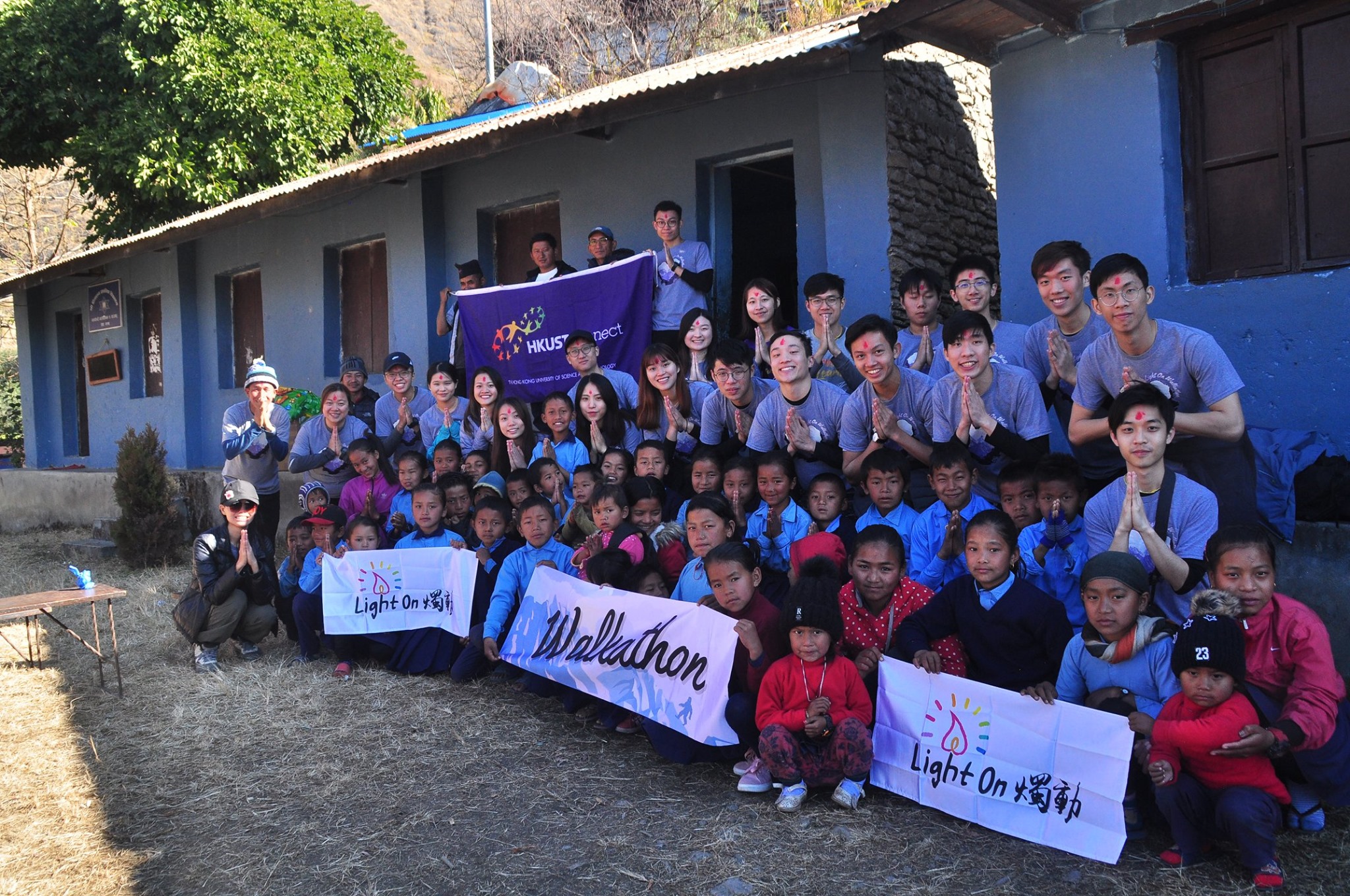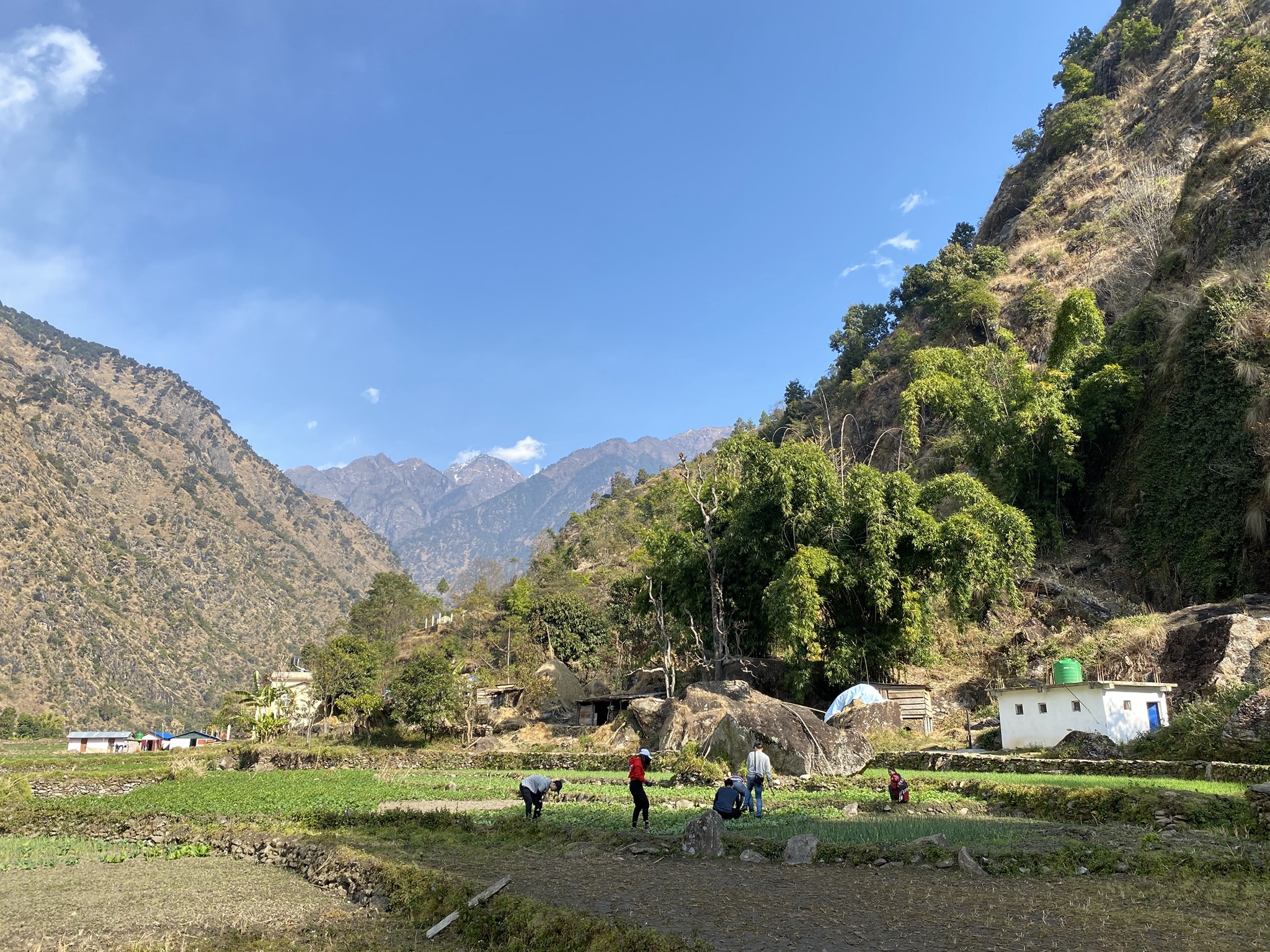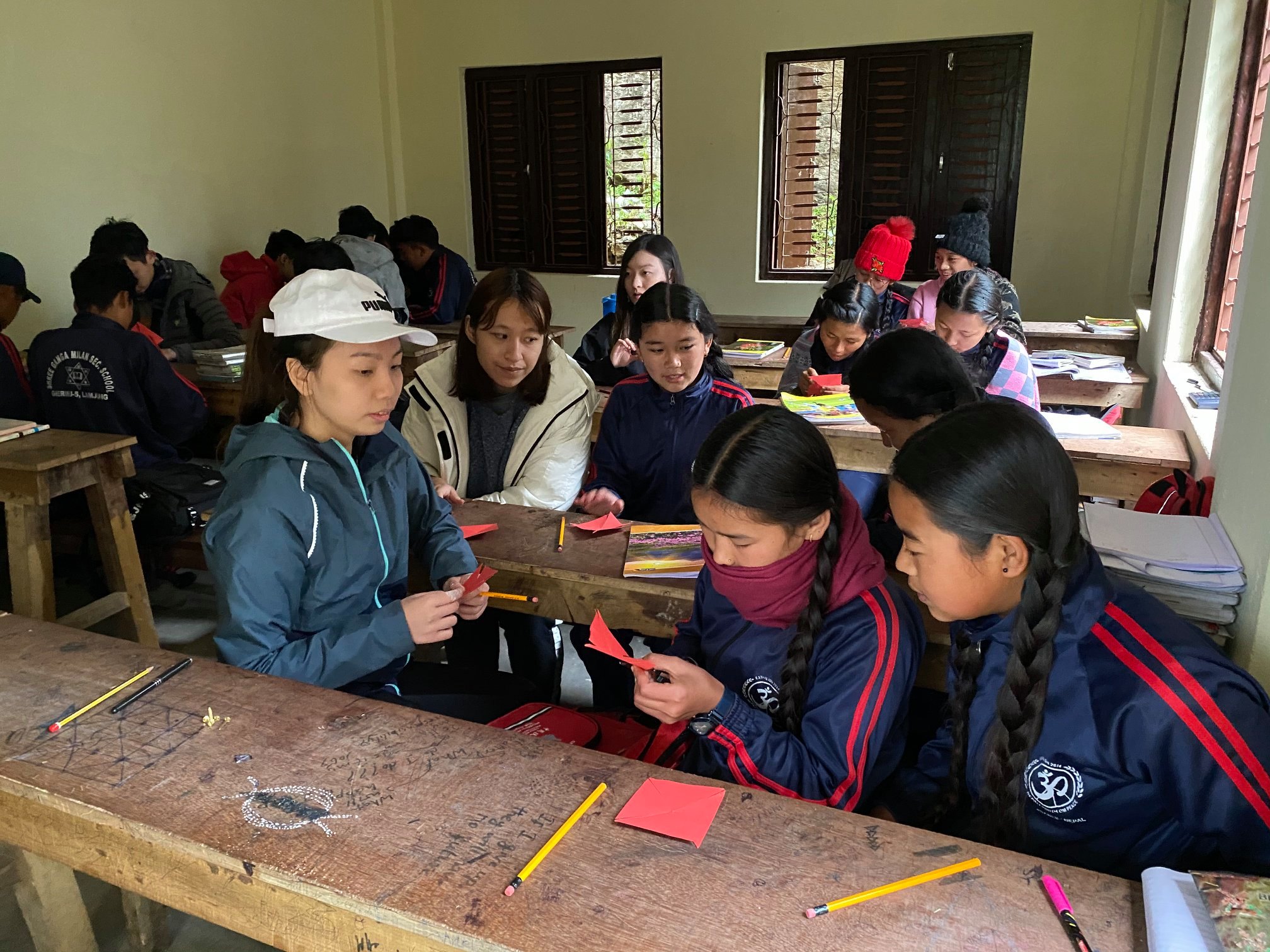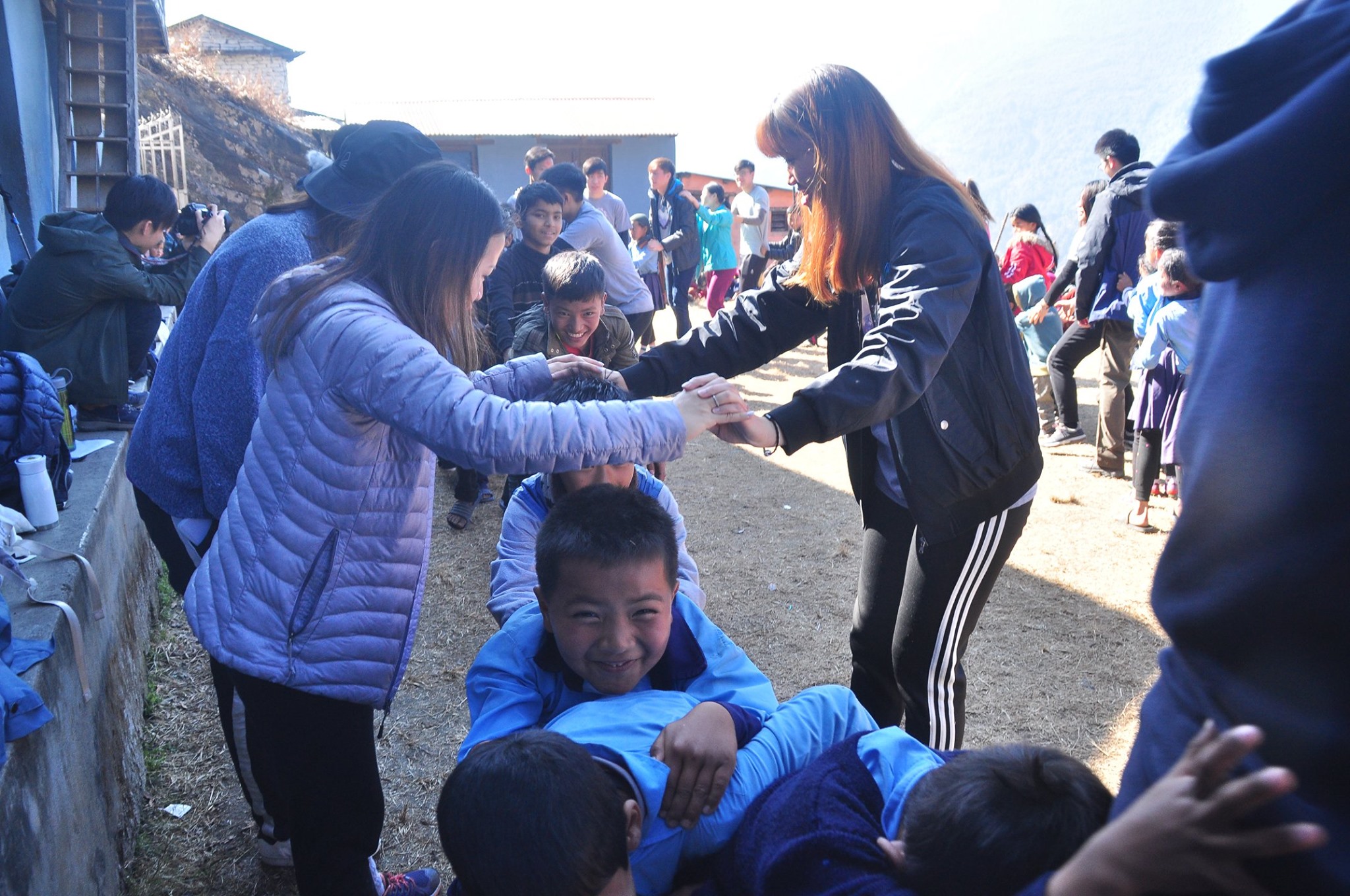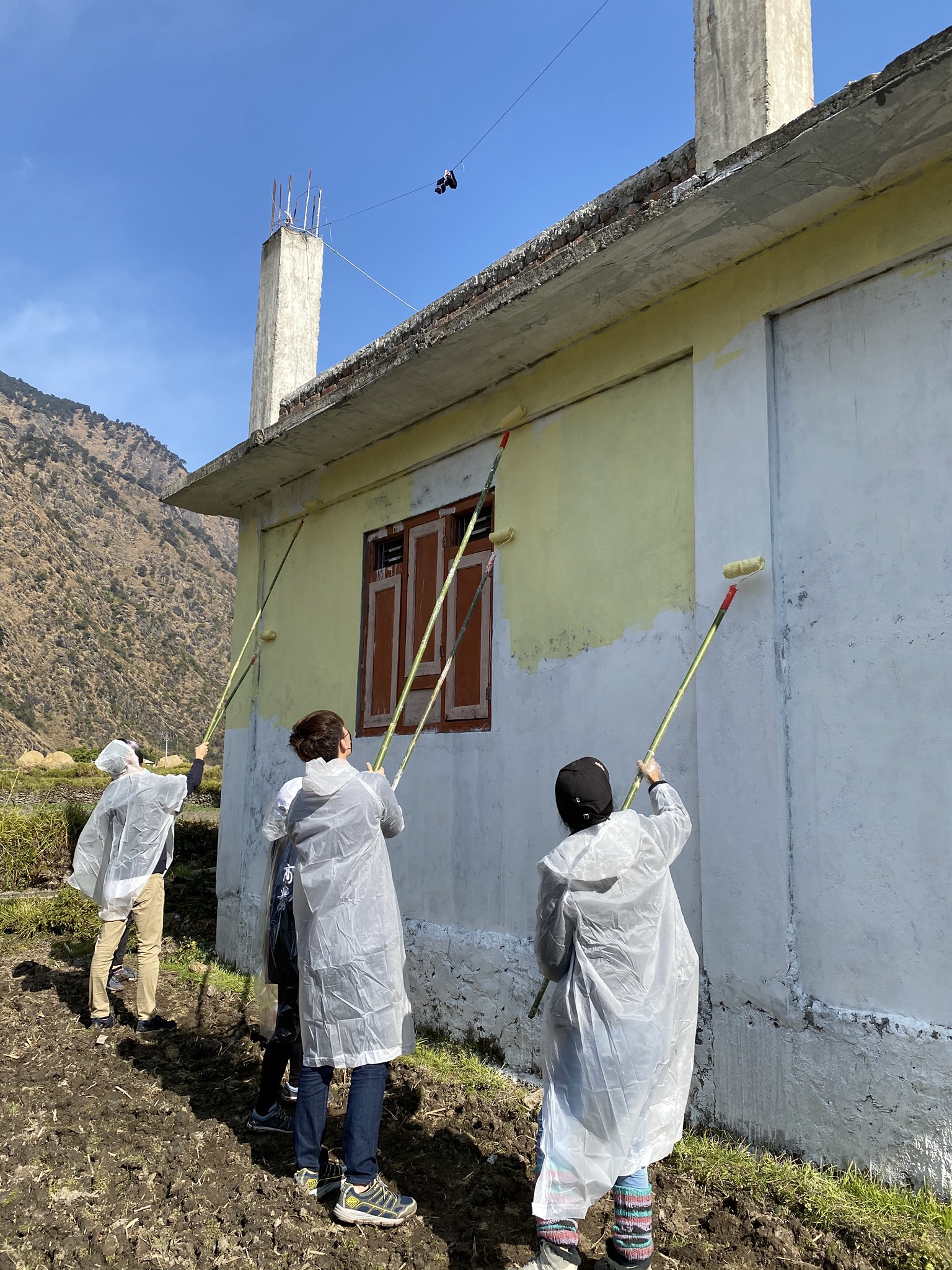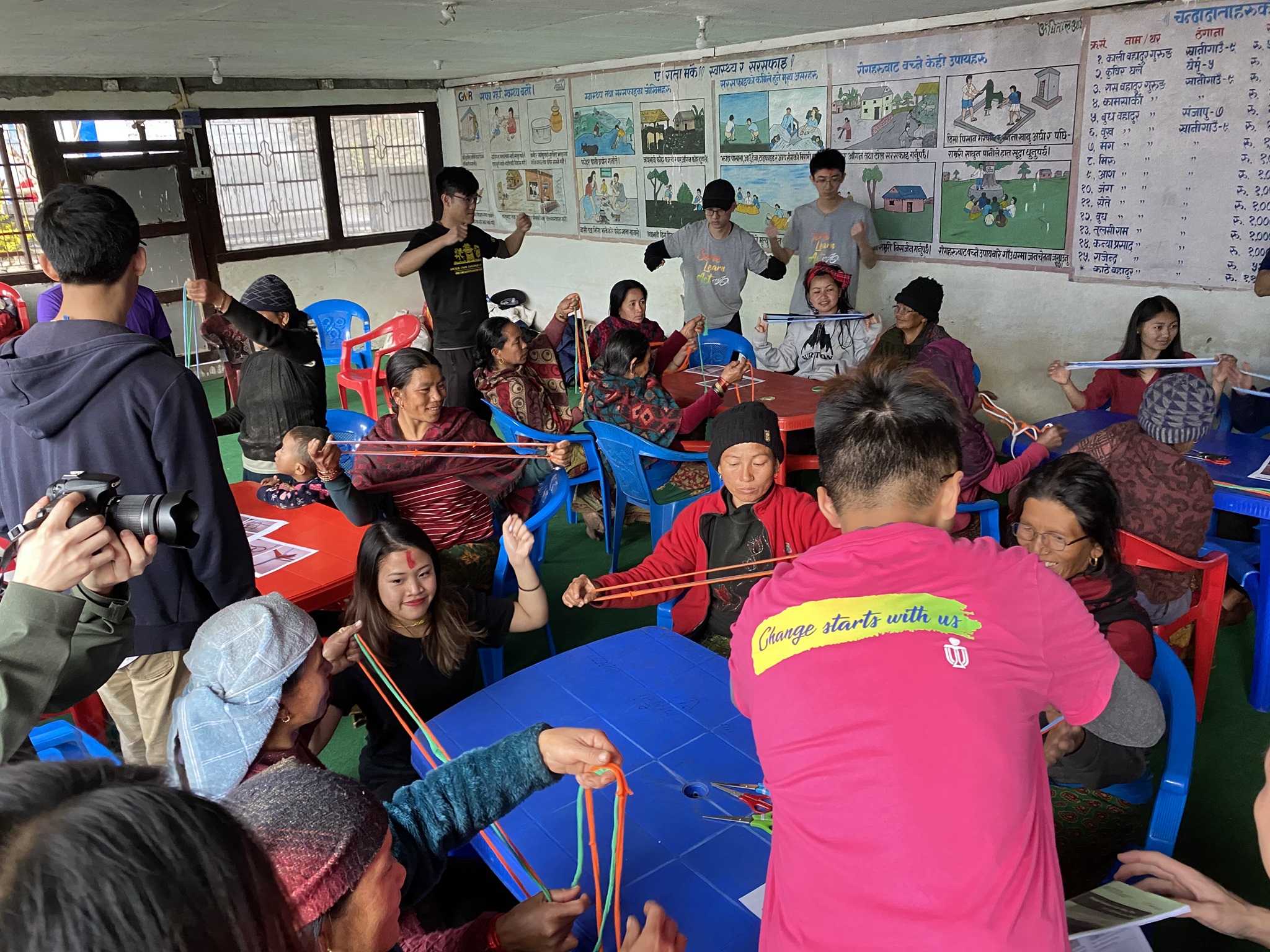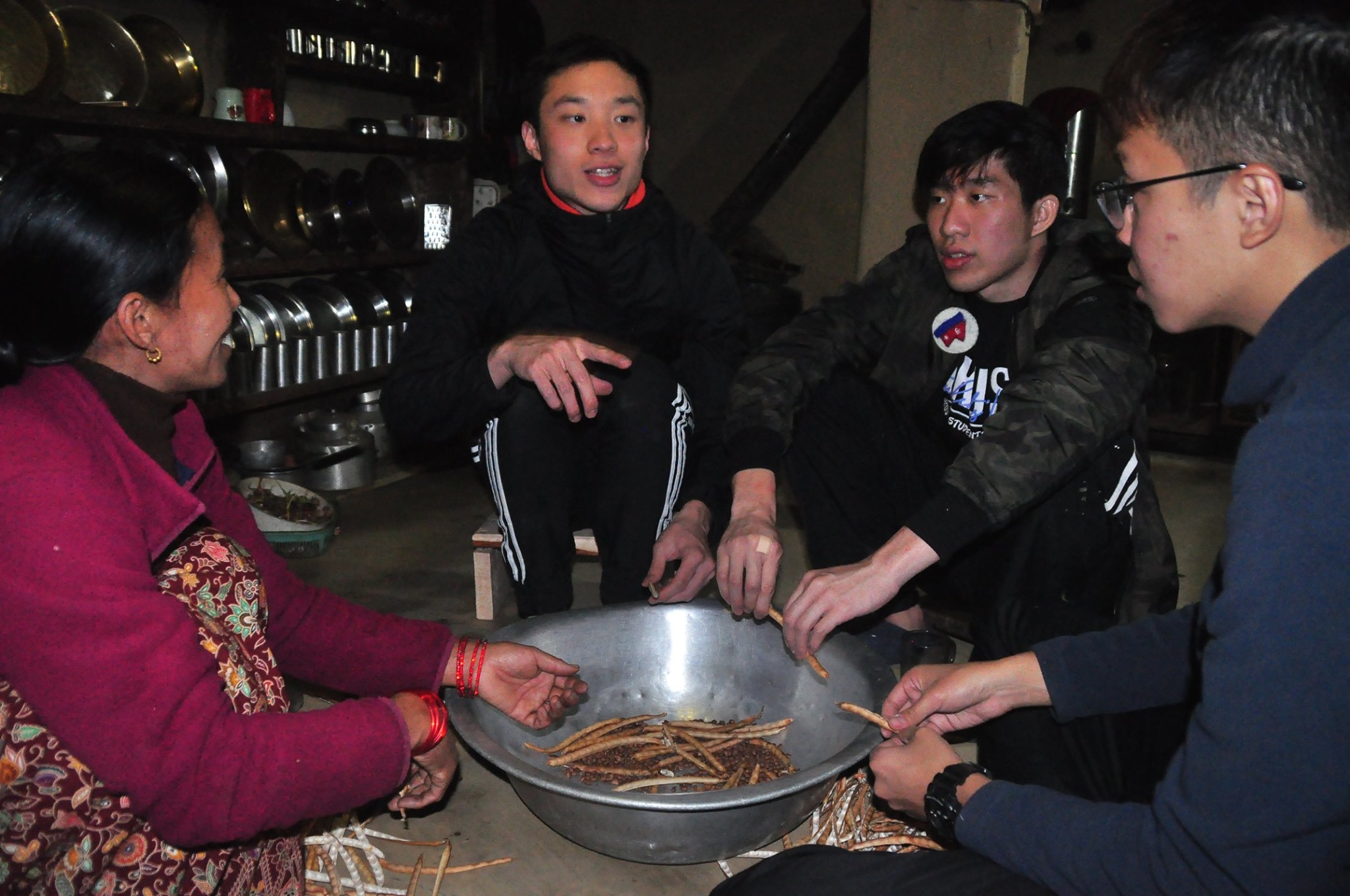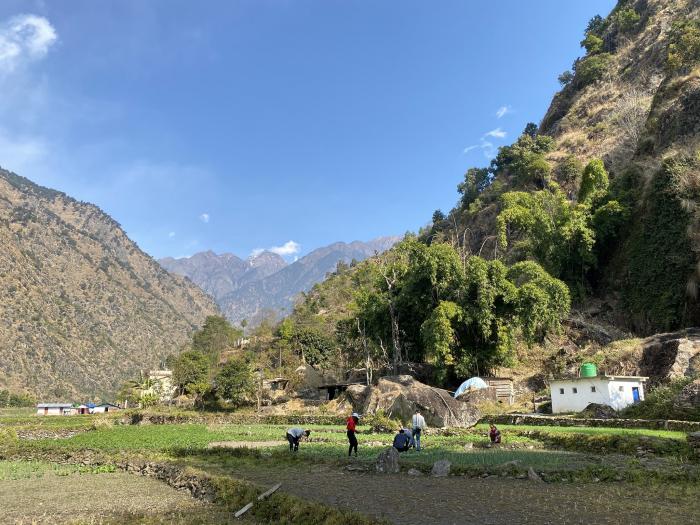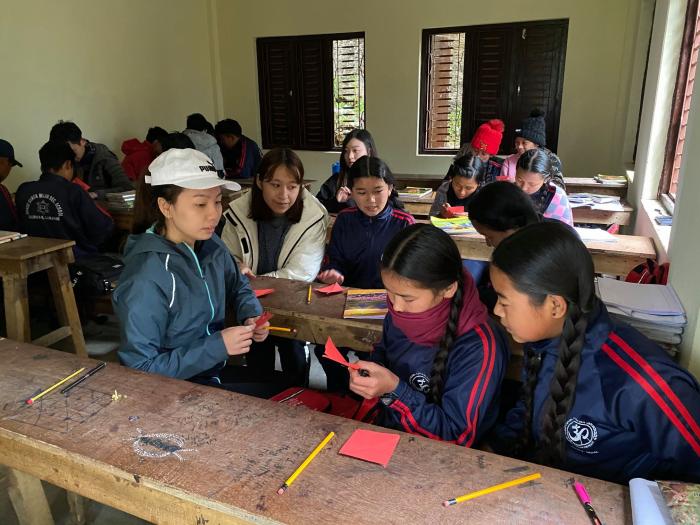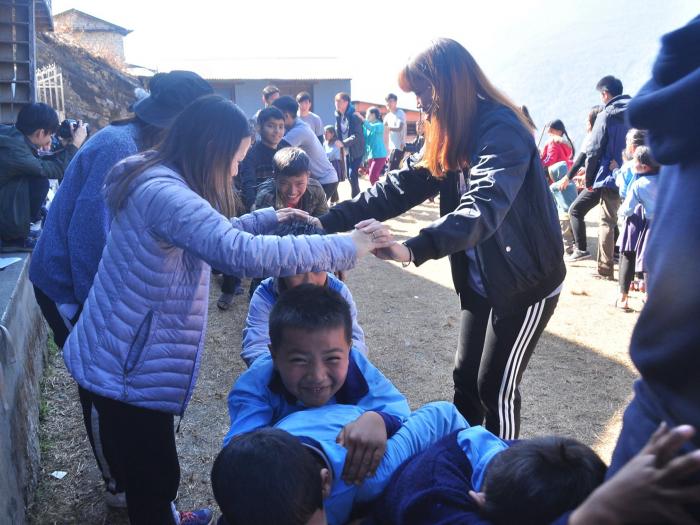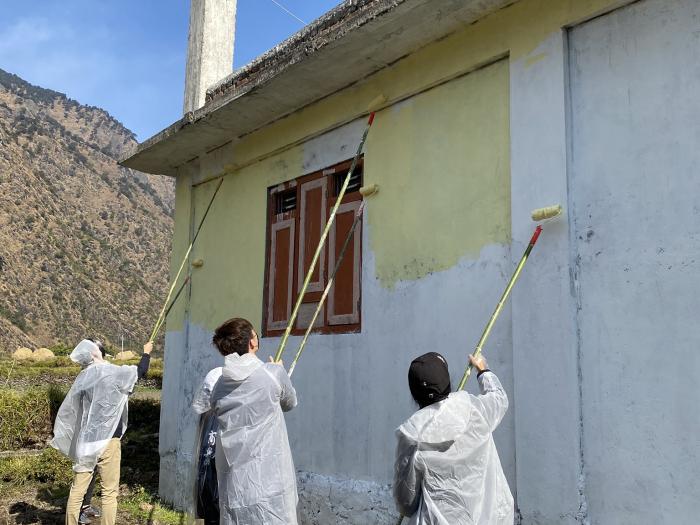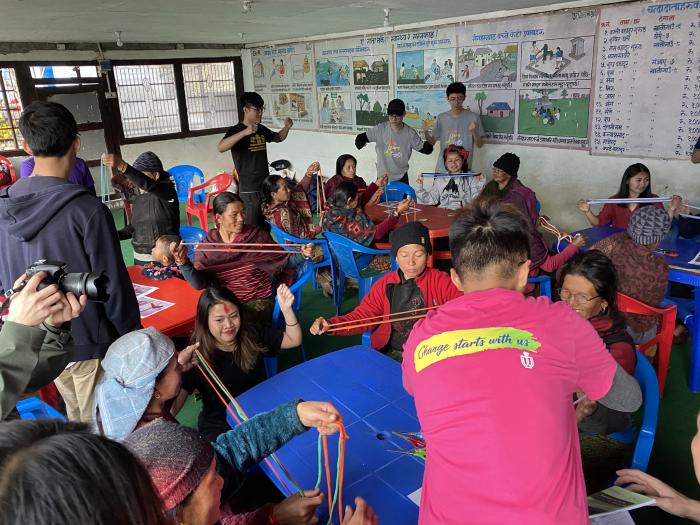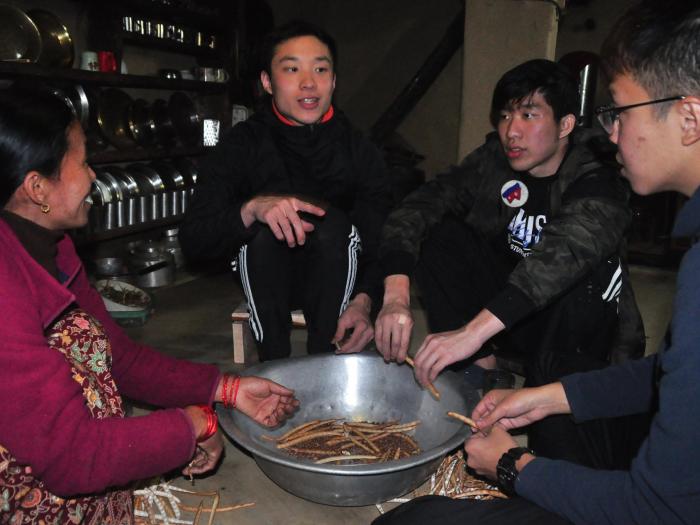Nepal Service Learning Trip (Jan 20)



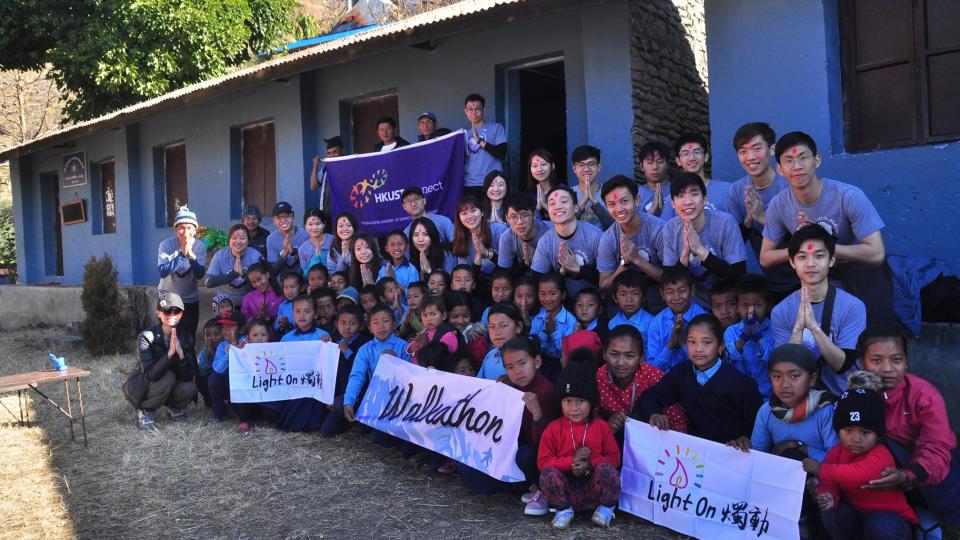
In Jan 2020, the 4th Nepal Service Learning Trip was held, with a total of 19 students from different disciplines. Participants visited a remote village in Ghermu, Lamjung. It was a precious opportunity to serve and interact with the local children and villagers, understand the Nepalese culture, and reflect on the purpose of life.
Participants attended several pre-trip workshops and gained a deeper understanding of Nepalese culture and the needs of Nepalese children. With the basic knowledge of design thinking acquired in the workshops, participants designed, planned and tested activity and teaching session plans for local students and villagers.
After 6 hours on the bus, 2 hours of a bumpy jeep ride and 30 minutes of hiking, participants finally arrived at the village. In such a remote village, there are almost no modern facilities. Participants would have a chance to live with the homestay families and experience a meat-free, shower-free, and Wifi-free Nepalese rural life.
The main service venue took place in Shree Ganga Milan School, which is 30 mins walk from the homestay village. During three days of visit, participants conducted English, Science and Engineering classes. They also contributed physically with wall painting and farming.
In the school they taught, some students need to walk 3 hours a day to go to school. To alleviate the hardship, Light On organized a fundraising project this year in order to purchase a building near the school and convert it into a student hostel. To experience such hardship, participants trace the footsteps of the students by hiking from the village to Sanjapu village (which has a much higher altitude) and carry out an interaction session with the kids there.
On top of contributing to the local society, encouraging personal transformation is an important element of the trip. With sessions of group sharing and activities, participants are introduced to the goals of Self-reflecting, Living in the Moment, Teamwork and Be the Change. The experiences allowed them to raise awareness to the society and towards themselves. Thus, participants showed a better understanding on one’s individual power to impact the society.
Students' Sharing
“To what extent does modernisation does good to rural villages?” We all assumed that bringing knowledge and leading them to our definition of civilisation through basic infrastructure etc are no doubt the right thing to do, but have we ever evaluate the impact of these things to our life; whether these things really brought more harm than good to the world that we are so used to. As city people, we are always not satisfied with what we are doing, we often tried to find ways to spark our life up and tried to make our life seems perfect to others. But through this process, we often ended up following trends created by the ‘business world’ blindly and causing emotional distress. This is what made to think whether bringing knowledge from city is the right thing to do, have we been trying to impose the same cycle to them?
I believe the best way to deal with this situation is start from providing them these knowledge and also show them the importance of conversing the environment, we should try our best to educate in the right way so they won't make the same mistake although mostly likely they won’t listen. The main point here is we should try to help them as well as ourselves to try striking a balance in between rural life and modern life, as they both got their disadvantages, but we shall discuss what should be the balance.
CHIU Yui Hei (Jasper)
SSCI Student, Year 1
During that lunchtime, a man I previously thought was the headmaster approached us and
made a short lecture to show his feeling and gratitude for us. It was not until then did I realize
that he is a 'local' volunteer who managed to a degree of civil engineering but still chose to
be in Ghermu to support the kids in the local community. I can still remember the moment
when he asked 'who is the one who played the ukulele during the class?' and turned to me
following others' finger points. Then he said that this is the very reason he did not choose to
work in a charity and how he did not like the word charity since it only gives money or other
things without actually being there and learn what they really need. 'What if you were not
here today and just sent a ukulele here? Nobody here can play it and it would end up to be
of little use.'
These words made me think a lot deeper in the rest of the trip. I began to be particula
rly aware of the importance of being there and tried hard to shift my mindset from simply
'helping them' to 'knowing them and letting them know me'. In the rest of the trip, I would
say that this effort to shift my mindset is really worthwhile.
CHEN Yijia (Anto)
SENG Student, Year 2
Another learnings would be better communication and interpersonal skills with people of different ages and cultural backgrounds. This trip has allowed me to interact with children, adults and elderly of a completely cultural background which has greatly improved my communication skills with these people. For example, at first I was worried about communicating with the women in the handicraft workshop as they know very little English and are also older, however, after the workshop and getting the chance to work with them, I have learnt the art of body language and simply just giving encouragements by smiling and saying simple words to get along well and create closer bonds with these women. This improved skill will be greatly useful for my future career with client-facing jobs when interacting with people from different walks of life.

